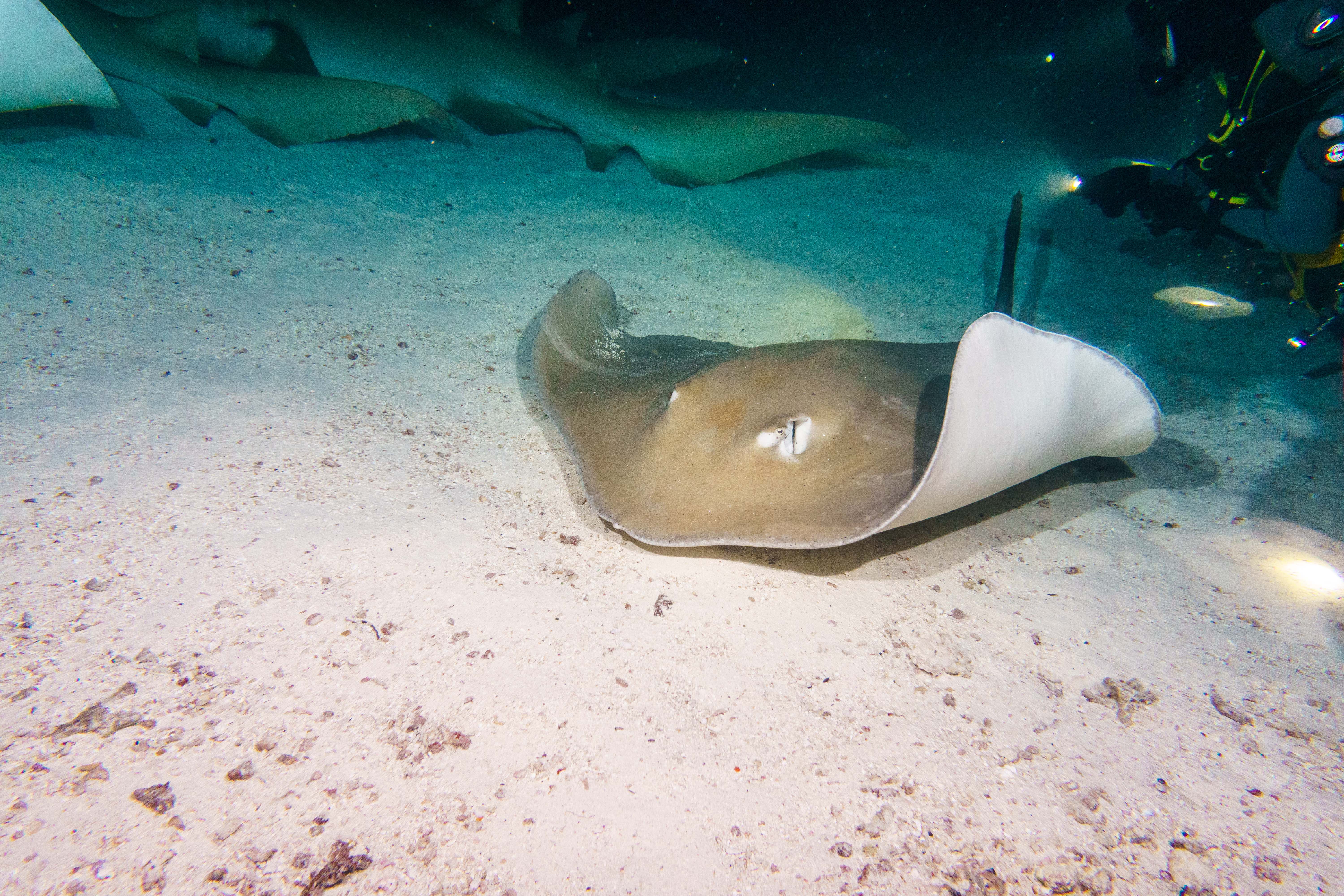Shock Encounter: Diver Attacked by Sharp-Tailed Stingray Off Israeli Coast
A diver in Ashkelon was moderately injured by a rare stingray encounter, highlighting the seasonal presence of these marine creatures during breeding season. The incident underscores the need for caution in coastal waters teeming with protected marine life.

A 40-year-old diver was hospitalized in moderate condition after a rare encounter with a stingray, locally known as a “sea cat” or trigon, at Bar Kochba Beach in Ashkelon, Israel.
The man sustained a hand injury when stung by the marine creature, identified as a sharpnose stingray (Trigon), a cartilaginous fish prevalent in Israel’s warm, shallow coastal waters. Magen David Adom (MDA) paramedics promptly treated the diver at the scene before evacuating him to Barzilai Medical Center.
The incident, reported by Ynet, underscores the seasonal presence of stingrays along Israel’s shores during their breeding period, raising awareness about marine safety.
MDA paramedics Eitan Lasri and Adva Assulin recounted, “We arrived at the scene and saw near the water a man about 40 years old who told us he was stung by a sea cat after diving in the area. We immediately provided medical treatment that included bandages and stopping bleeding, and evacuated him quickly to the hospital in moderate but stable condition.”
The stingray’s serrated spine, located at the base of its tail, delivers a painful defensive sting, as explained by Dr. Adi Barash, CEO of the Sharks in Israel NGO and a postdoctoral researcher at the Steinhardt Museum of Natural History. She stated, “Trigon is a cartilaginous fish, also known as a sea cat. Trigons have a serrated spine at the base of the tail used for defense against predators. In this season, trigons gather at the coasts for breeding. Those swimming in the sea can see dozens of trigons of various species during this period.”
Dr. Barash emphasized the ecological context: “Usually, trigons don’t come to standing depth and avoid crowded human areas, but such an encounter is possible. Our sea, especially in this season, is teeming with marine life; octopuses, fish, sea urchins, and more.”
She also noted that trigon species are protected in Israel, advising, “For those swimming and encountering them, it’s important not to chase, not to block, and certainly not to touch.”
The incident highlights the need for caution during peak marine activity, as stingrays, while generally non-aggressive, can sting when threatened. Swimmers are urged to respect marine life and avoid contact to prevent similar injuries, particularly during breeding season when trigons are more prevalent.